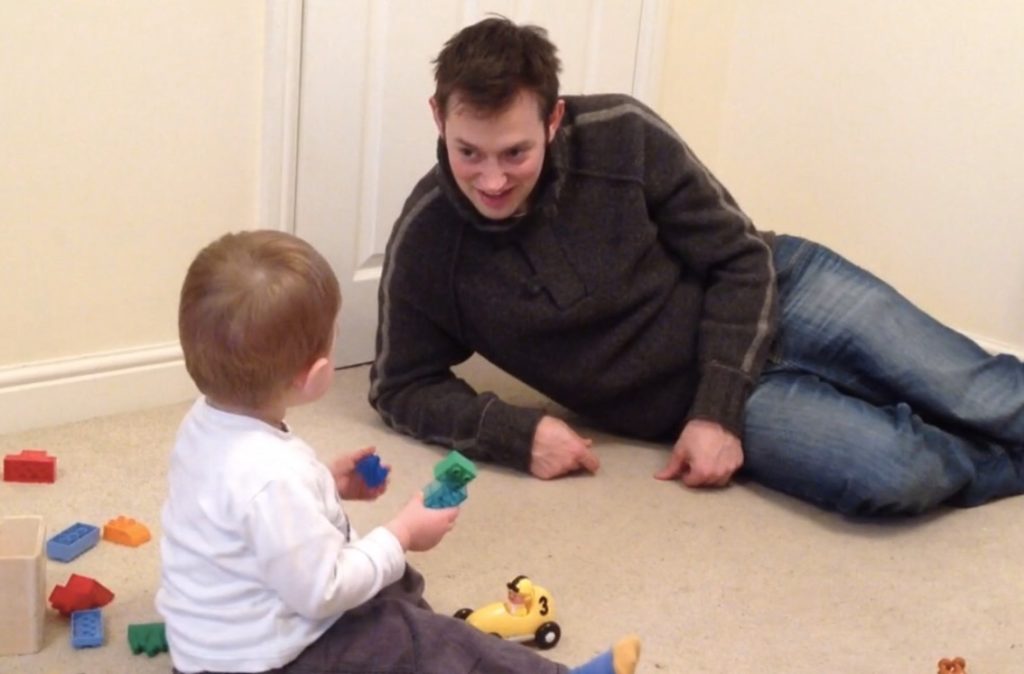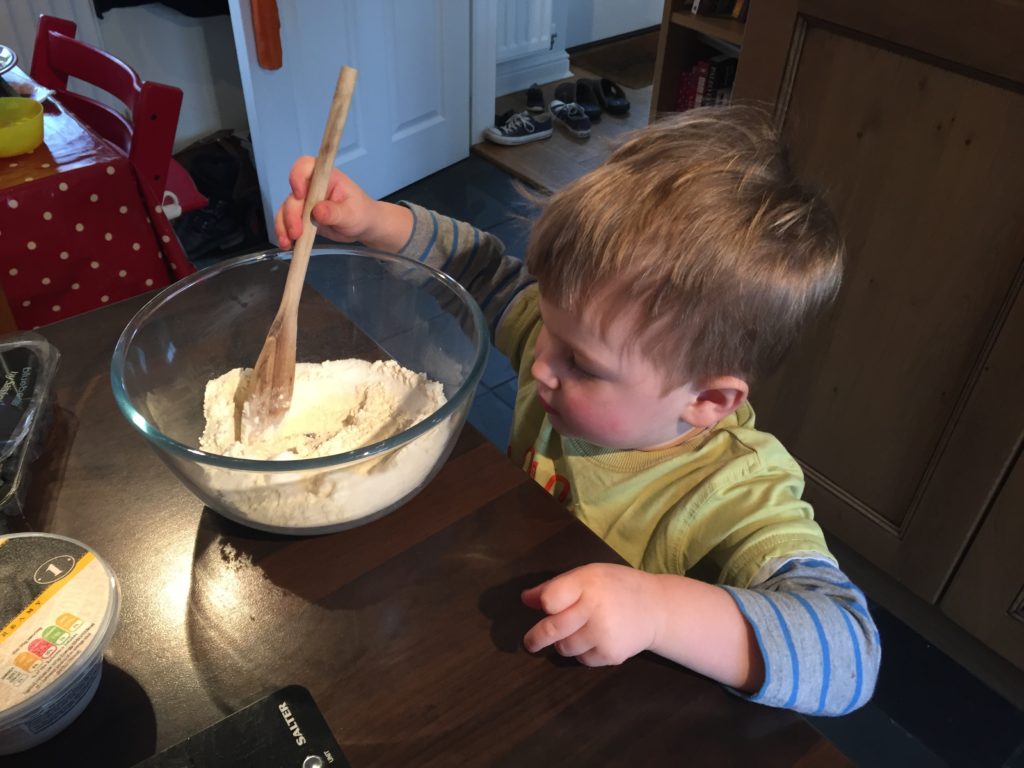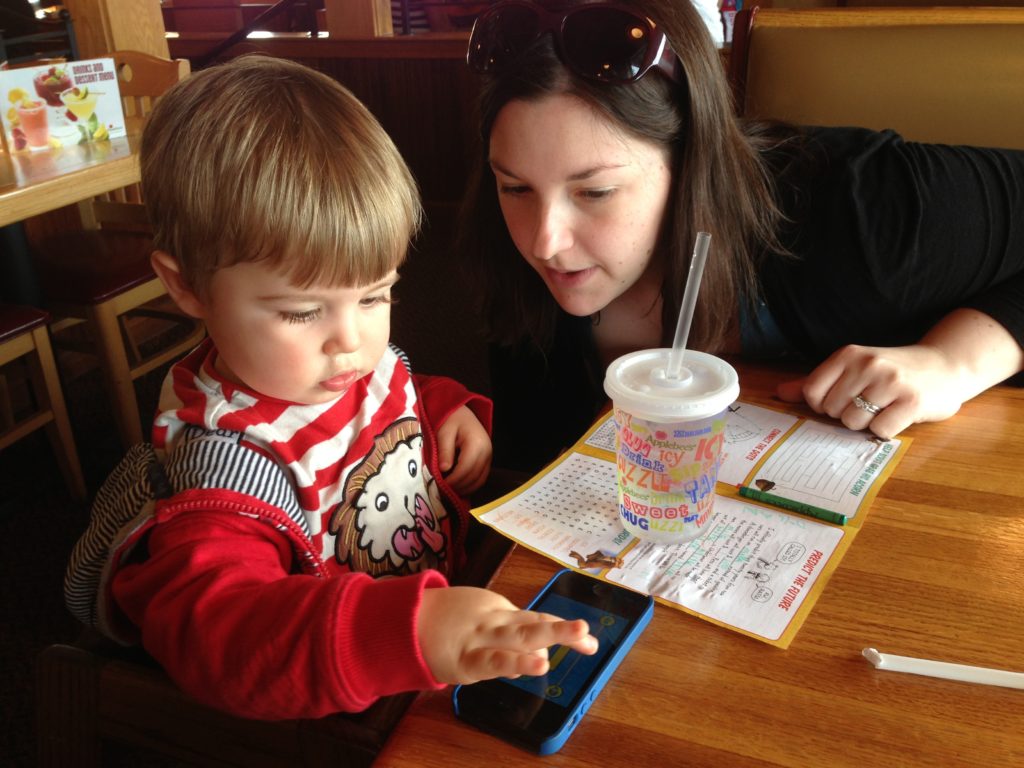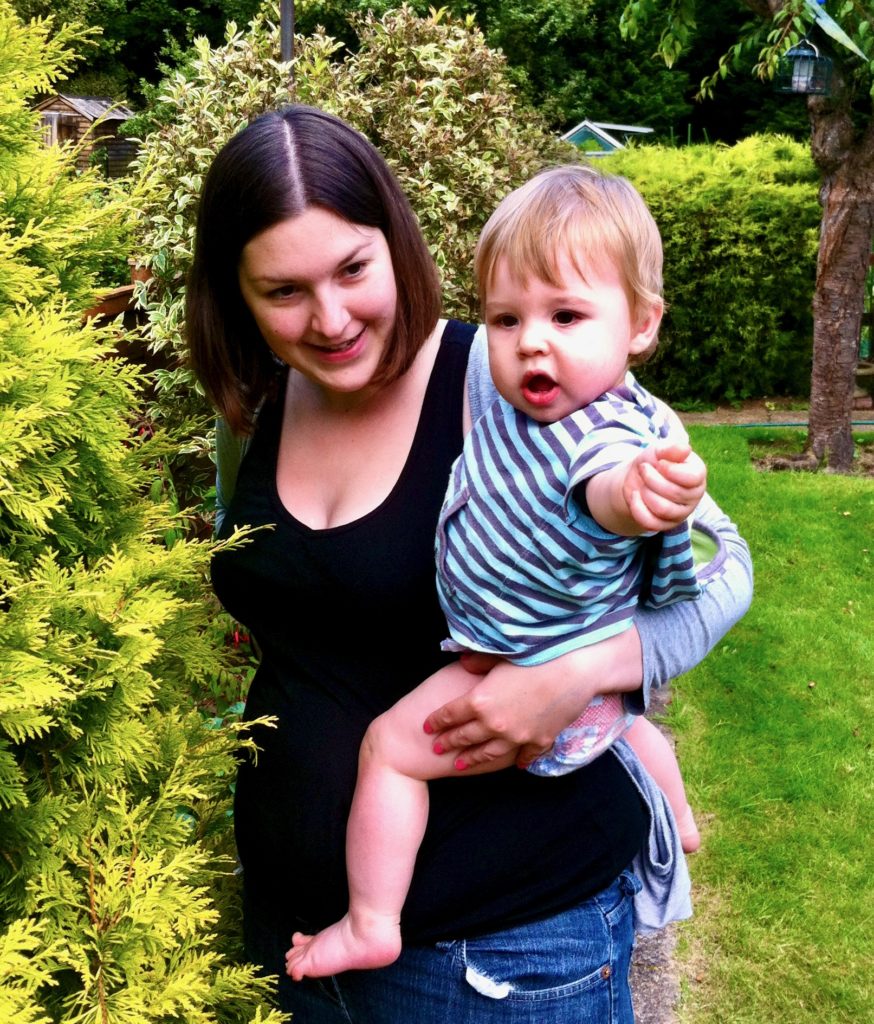This week I thought I’d move onto toddlers and by this I mean children from 12 months to 3 years – while children this age can be wilful and push boundaries, they are so full of fun, that I really enjoy working with them!
Toddlers love to play, especially with adults. At this age, while they develop their language and play skills, they’re much more likely to interact with you than with other children. And play is a perfect opportunity for learning language. If you can spend 15 minutes or so a day focusing on these areas below, it will really benefit your toddler:
Face to face: Getting down to your child’s level and being face to face with them means that you can see exactly what they’re interested in.

Follow your child’s lead: Once you are at your child’s level, let them lead the play. If they are not yet using many words, copy what they’re doing. If they’re talking a bit more, encourage them to tell you what they want. I know a lot of children enjoy playing the same games and acting out the same scenarios so if you want you can expand your child’s play by gently adding your own ideas. Obviously you can’t follow your child’s lead all the time, but if you do it where possible it will open up so many positive communication opportunities.

Comment on your child’s play: This is a really powerful tool. Focusing on what your child is doing and using short comments instead of questions allows you to model language without putting them under pressure to respond. Your child will still respond to comments, and may respond more than with questions. Try “the monkey’s jumping” instead of “is the monkey jumping?” Although it can be tempting, avoid testing what your child knows by asking, ‘what’s this?’ especially if your child is a little reserved.
Add words: If your child is already using words and phrases, a great tip is to imitate the word or phrase that they’ve used (with correct grammar) and add a word. For example if your child says “eat apple” you could say “the doll’s eating an apple”.
Wait to give your child time to respond: It can be tempting to fill playtime with lots of language especially if your toddler only has a few words, but at this time it’s important to wait once you’ve spoken to give your child time to respond. It can take them a little time to process what you’ve said, so give them longer than you would an older child or adult.
Once again, these ideas can be brought into all aspects of your daily routine from mealtimes and bath time to outdoor play and getting dressed. Reading is a great language learning time, especially if you don’t follow the written words of the book, instead look at the pictures and talk together about what you can see, let your toddler lead when they want to turn the pages.

Its typical for toddlers to use their first words anywhere between the ages of 1 year to 18 months and start putting two words to form mini sentences at around 2 years of age. And don’t worry if you can’t understand everything they’re trying to say at the moment as speech sounds typically come a little later. However, if you are worried about your child’s speech or language development, then contact your local NHS speech and language therapy department or while we are social distancing, feel free to contact me through the details found on my Facebook page.

